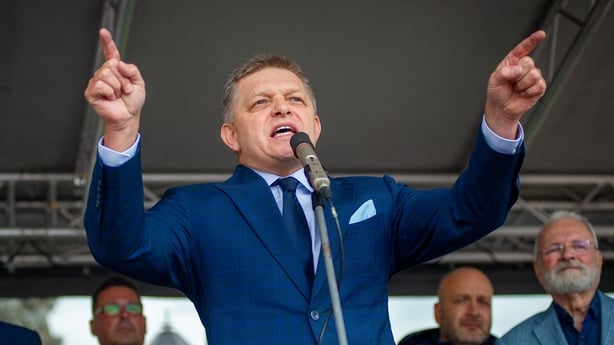Slovakia's Prime Minister Eduard Heger resigned yesterday four months ahead of a parliamentary election in September.
Mr Heger had led a minority conservative government since 2021 but had been on fragile ground since December when he lost a no-confidence vote in parliament.
Mr Heger's resignation followed a week in which two of his cabinet ministers had also quit - agricultural minister Samuel Vlcan over allegations involving subsidies for a company that he owns and, one day later, the resignation of his foreign minister Ratislav Kacer.
The departure of Mr Heger raises the prospect of a return to office of former Prime Minister Robert Fico, who leads the populist, centre-left Slovak Social Democracy party (SMER).
Mr Fico's party is currently polling at 17%, the largest show of support for a party in Slovakia, just ahead of Voice, another centre-left party, according to Politico’s Poll of Polls.
Mr Fico, who served as prime minister twice from 2002 to 2006 and, again, from 2012 to 2018, has said that, in the event of winning the next election, he would halt the supply of arms from Slovakia to Ukraine.

"Fico mixes social democratic rhetoric in terms of welfare issues with a kind of national populism," Juraj Marusiak, a political scientist in Bratislava, told RTÉ News.
"He is now adopting social conservative rhetoric against gender issues, LGBT, so he is representative of illiberal conservatism and a kind of social democracy," said Mr Marusiak from the Slovak Academy of Sciences.
Slovakia, like Poland, last month sent a number of Soviet-era fighter jets to Ukraine and has, since the start of Russia's invasion, donated over €200m in military aid to Kyiv, according to Germany's Kiel Institute.
The next government is likely to be a coalition. Slovakia’s political landscape is fragmented - as many 12 political parties are represented in parliament, including the smaller pro-Kremlin Slovak National Party and a minority Hungarian party.
Slovak President Zuzana Caputova yesterday named Ludovit Odor, the deputy governor of the National Bank of Slovakia, to lead a technocrat government until the election in September.
It will be the first technocrat government in the republic’s 30-year history since its separation, in 1993, from the former Czechoslovakia.
Additional reporting Reuters







